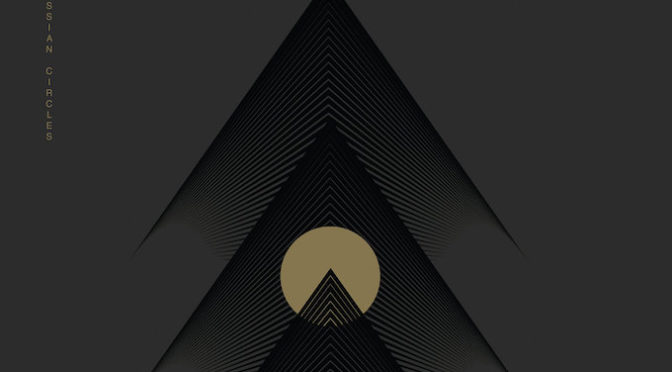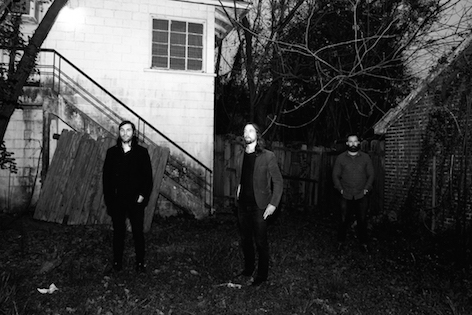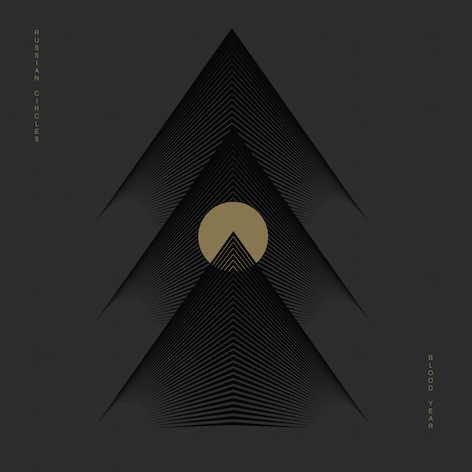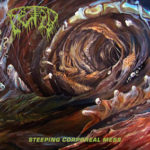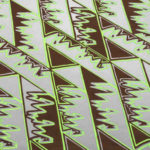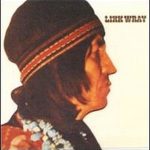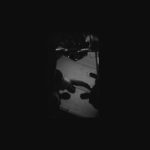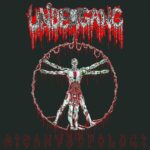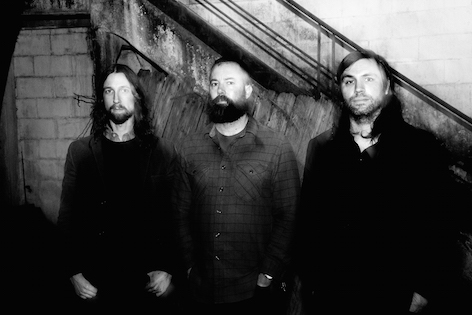EXCLUSIVE: INTERVIEW WITH BRIAN COOK OF RUSSIAN CIRCLES !!
ALL PHOTOS BY TEDDIE TAYLOR
“I Would Much Rather Listen To a Darkthrone Album That Sounds Like It Was Recorded On a Boombox Than Hear Some Over-produced, Over-polished, Over-wrought Album.”
DISC REVIEW “BLOOD YEAR”
「ライブの宣伝をするためにレコードを作るのか、それともレコードを売り込むためにライブを行うのか。個人的にはライブの方がより重要だと感じるね。」
THESE ARMS ARE SNAKES, SUMAC、そして RUSSIAN CIRCLES で重厚な音の石段を積み重ね続けるシーンきってのベースマン、Brian Cook は前作 “Guidance” リリース時のインタビューでそう話してくれました。
緩と急、厳粛と轟音、膨張と収縮。ポストロック/ポストメタルのトレードマークであるダイナミズム、対比の美学を誰よりも深く追求してきた RUSSIAN CIRCLES は、同時にライブに宿る刹那の奇跡、生の感情、迫真のサウンドを誰よりも深く愛しています。
Brian とギタリスト Mike Sullivan、そしてドラマーの Dave Turncrantz。ステージへ上がるのはたったの3人ですが、ライブに鳴り響く彼らの轟音は “leave them all behind 2014” の初来日がまざまざと示したように、バンド名の由来となったアイスホッケーを想起させるほど強烈にフィジカルでダイレクトな “接触” です。
一方で、モダンなアーティストとしての多様性を咀嚼し血肉とする万華鏡の音楽性も魅力の一つ。メタル、ドゥーム、ハードコア、ノイズ、クラウトロックそしてプログロックまで千変万化に分裂を続けるバンドの音楽細胞は絶え間なくその体内を駆け巡っているのです。
およそ5年間、3枚の長い音旅を終えて RUSSIAN CIRCLES は岐路に立っていました。
“Guidance” リリース時のインタビューで、アーティストとして生きることの儚さ、不安定さを言及していた Brian はそうして今回、経済面よりもむしろ “普通” を外れて生きることのプレッシャーや困難が彼らのバンド、ひいてはミュージシャン全体を圧迫していると語り音楽活動に熱意を保つことの難しさを吐露してくれました。
“What’s next…?”。混乱と葛藤の中にあった RUSSIAN CIRCLES を蘇らせたのはやはりライブでした。
“Guidance” のツアーで世界を回り、リフ&ビートを刻み続けるうちバンドの創作意欲は充填され遂には溢れ出したのです。
「僕たちは全員がアグレッシブなレコードを作りたかったんだ。もちろん、厳粛でアトモスフェリックな楽曲をアルバムに収録するのも大好きなんだけど、ライブではただ “ロック” な楽曲をプレイしたいんだ。静かな楽曲はとてもデリケートで、だからこそライブでは様々な “拘束” を受けてしまうからね。」
バンドが新たな旅の目的地に選んだのはよりオーガニックでダイレクトなロックの地平でした。確かにこの “レコード” は両面共に、”Hunter Moon”、”Ghost on High” という情緒さえ感じさせる、緩やかで静謐を湛えた美麗なサウンドスケープに端を発します。
とは言え、Dave Turncrantzのスティック一閃、ボンゾやキース・ムーンのスネアの重みを右頬に、骨をも砕くベースアタックを左頬に受けたリスナーは、アルバムがジャンルを超越したただ唯一無二の “ロック” であることを確信するはずです。そうして浮遊するミステリアスなギターの旋律が激しくドライブを始めると、あたかも有史以前の怪しい儀式のごとく最高潮に達したバンドのグルーヴは、津波のようにリスナーの脳天へと押し寄せるのです。
さらに、”Milano” や “Quartered” のダークで不穏、激しい感情の胎動を聴けば、Brian の言葉通り “Blood Year” が怒りに根ざしたアルバムであることも伝わるはずです。
その怒りとは、全てを賭して不安定な芸術家稼業を邁進する彼らの状況、そしてその彼らとはあまりに相反する人工的で画一的、インスタントなサウンドを量産するシーンにも向けられていたのかもしれませんね。さらには現在アメリカを覆う政治の暗い陰までも。
「ギタリストの Trevor ともアルバムについて少し話したんだけどね。それでやっぱり PELICAN と僕等の新作にはいくつか相似点があると思ったんだ。両バンド共に、近年はライブをより積極的に行って来たね。だから僕たちはライブのエナジーを捉えたアルバムを作りたかったんだと思うんだ。それに “Nighttime Stories” は現在のアメリカに漂う政治的不満を代弁するアルバムだと理解しているんだけど、僕たちも現在の政権に対する不満や敵意をシェアしているんだよ。」
PELICAN と RUSSIAN CIRCLES。ポストメタルの黎明期から苦楽を共にしてきたインストゥルメンタルの両雄は、ライブ感と体制への怒りの両面で志を共にし、その暗く不穏な音の葉までもシンクロさせることとなったのです。
そのダークでダイレクトなシンクロニティーは、もしかすると Sunn O))) の最新作 “Life Metal” にも波及しているのでしょうか。実際、前作同様 Kurt Ballou がレコーディングを手掛けた “Blood Year” は、彼との共同作業の中で初めて地元シカゴにあるスティーヴ・アルビニ所有のエレクトリカル・オーディオ・スタジオにてベーシック・トラックを録音。同様に、Sunn O)))の “Life Metal” もアルビニのスタジオでこちらはアナログテープまで使用してフィジカルなサウンドに拘っているのですから。
アナログの哲学。「過剰にプロデュースされ、磨かれすぎて、鍛造されすぎたアルバムを聴くなら、僕はラジカセで録ったような DARKTHRONE のアルバムを聴くよ。」Brian の言葉は、RUSSIAN CIRCLES と “Blood Year” が指し示すシーンの先行き、さらにはオルタナティブなベテランたちが奇しくも孕んだ同調性の起因をこれ以上ないほど鮮明にしています。
では弊誌二度目となる Brian のインタビューです。どうぞ!!
RUSSIAN CIRCLES “BLOOD YEAR” : 10/10
INTERVIEW WITH BRIAN COOK
Q1: We lost Caleb Scofield last year. Maybe, it seems you were acquainted with him, and you know, Mike Sullivan had an car-accident in 2016. When you heard the sad news, how did you feel?
【BRIAN】: We were on tour in Canada when we woke up to the news that Caleb had passed away. We had a long day of driving the day before, and at one point we had randomly listened to Cave In’s Until Your Heart Stops album, which was unknowingly an hour or two after the accident. I had known Caleb since 1998 and played a bunch of shows with Cave In over the years, so he felt like one of those casual friends I was going to see once every year or two as long as we were both making music. I was already upset by the news, but the grief intensified as I reached out to check in on our mutual friends. His death left a huge void in a lot of lives.
Mike’s car accident was really intense. I don’t want to go into too much detail about it because the situation was really fucked up, but we’re thankful he came out of it with relatively few injuries.
Q1: 昨年、CAVE IN の Caleb Scofield が車の事故で亡くなりましたね。おそらく、あなたも彼とは繋がりがあったと思いますし、RUSSIAN CIRCLES 自体も2016年に Mike Sullivan が交通事故にあっています。
【BRIAN】: Caleb が亡くなったというニュースを聞いたのは、カナダをツアーしている時だったね。僕たちはその前日に長い間運転していて、偶然にもそのドライブの途中で CAVE IN のアルバム “Until Your Heart Stop” をかけていたんだよ。おそらく事故の1,2時間後なんだけどね。
僕は Caleb のことを1998年から知っていて、何年にも渡って CAVE IN とはツアーも共に行って来たからね。だからお互い音楽を作っていれば、1,2年に1度は会うカジュアルな友人の1人って感じだったね。
彼の死には動転していたんだけど、共通の友人たちと分かち合うことでその悲しみはさらに増していったんだ。彼の死は多くの人生に大きな穴をあけてしまったんだよ。
Mike の車の事故も危なかったよ。クソみたいなシチュエーションだったからあんまり詳細は話したくないんだけどね。だけど彼が少しの負傷で戻ってこられたことには感謝しているんだ。
Q2: After “Guidance”, Brian came to Japan with Sumac, and connected lot’s of Japanese artists like Endon, Friendship, Keiji Haino. Did you get inspirations from them?
【BRIAN】: We’re all big fans of Japan and its music scene. Actually, the first time I heard ENDON was when Russian Circles played with them in Tokyo back in 2014, and afterwards I interviewed them for VICE/Noisey. One of Russian Circles’ first shows ever was with Melt Banana. We did a few shows with Mono when they toured with Pelican in the States, and we did two tours with Boris. Dave went to Japan to do a drum clinic with Ludwig last summer and came back to vacation in Tokyo. So all this is to say that we’ve always felt a kinship with Japanese artists and we’ve always enjoyed what Japan has to offer both musically and culturally. And yes, I find ENDON, Friendship, and Keiji Haino to all be very inspiring.
Q2: “Guidance” をリリースした後、あなたは SUMAC で来日を果たし、ENDON, FRIENDSHIP, Keiji Haino といった日本のアーティストたちと繋がりを持ちましたよね?
【BRIAN】: 僕たちは全員、日本とその音楽シーンの大ファンなんだよ。実際、僕が初めて ENDON を聴いたのは RUSSIAN CIRCLES が日本で彼らとプレイした 2014年だったんだけど、その後 VICE/Noisey のために彼らにインタビューしたくらいだからね。
RUSSIAN CIRCLES の最初のショウの1つは Melt-Banana とだったし、MONO が PELICAN とアメリカを回っている時に一緒になったこともあるね。それに BORIS とは二度のツアーを経験しているよ。Dave は昨年の夏にラディック主催のドラムクリニックで日本へ行って、東京でバケーションも楽しんで来たしね。
だからその全てを鑑みても、僕たちは日本のアーティストにいつも親近感を持っているし、日本が生み出す音楽や文化を楽しんでいるんだよ。もちろん、君が挙げた ENDON, FRIENDSHIP, Keiji Haino からはインスパイアされたしね。
Q3: In our last interview, Brian said “We’re very aware of our frailty and the instability of living the artists’ life. Guidance just seemed like a good term to address our uncertain futures.”. Actually, “Guidance” was really well accepted to the scene, critics and fans. Do you think that success changed band and your enthusiasm about music somehow?
【BRIAN】: We’re very lucky that people continue to follow our work. As I get older and as we put out more records, there are fewer and fewer artists I can look to as our peers in terms of longevity. In some ways that’s exciting because it feels like we’re charting our own path, but it’s also a little disconcerting because being an artist sometimes feels like a postponement of responsibility. But that quote about Guidance isn’t necessarily about the instability of the artist life in terms of financial success as much as it’s about the uncertainty of living outside of the normal routine. It’s hard to make any sort of longterm plan for your life because its bound up in the schedule of the band. Like, it’s probably easier to block out a chunk of time for vacation or for medical treatment or for moving homes when you have a normal office job than when you’re a touring musician, because you never know when the next festival offer or tour option comes up, and you can’t call in sick for that stuff. But that quote went beyond those logistic concerns… there was just a general sense of “what’s next?” when we finished Guidance, and that was really what I was trying to articulate.
Q3: 前回のインタビューであなたは前作 “Guidance” について、「アーティストとして生きることの儚さや、不安定さを強く実感しているんだよ。”Guidance” とは、僕達の不確かな未来を表現するのに適当な言葉に思えたのさ。」 と仰っていましたね。
一方で “Guidance” はファンや批評家に大好評で迎えられた作品でした。あのアルバムの成功が、今回バンドやその音楽を変えた部分はあるのでしょうか?
【BRIAN】: まず、アルバムをフォローし続けてくれるファンが居て、僕たちはとてもラッキーだと思っているんだ。歳をとり、レコードを重ねるうちに、僕たちほど長く続けている仲間はどんどん減っていっているんだからね。だからある意味では、僕たち自身の道筋を進んでいるようでエキサイティングなんだけど、アーティストであることが責任を先延ばししているようにも感じたりして、少し混乱しているんだ。
つまり “Guidance” について僕が語った内容は、必ずしもアーティストの経済的な不安定さのみを言及している訳じゃなくて、むしろ普通の生き方から外れてしまう不安の方が大きいんだろうな。だってアーティストの生き方だと、バンドのスケジュールに左右されて長期的な人生計画を立てることが難しいからね。
どう考えても、ツアー続きのミュージシャンより普通のサラリーマンの方が旅行や治療、引越しなんかの計画が立てやすいでしょ? だって僕たちはいつフェスティバルやツアーのオファーが舞い込むか分からないんだから。体調が悪いから休みますなんて通用しないよ。
だけど、あの言葉を発した時はそういった論理的なことは超越していたと思うんだ。ただ普通に、”Guidance” を終えて、次はどうしよう…と思っていたんだろうな。それが率直な気持ちだったんだ。
Q4: Your last three albums “Empros”, “Memorial”, and “Guidance” are connected strongly like trilogy. But it seems “Blood Year” is new journey for the band, right?
【BRIAN】: I would agree with that, but that wasn’t our intention and I don’t know if Mike or Dave necessarily feel that way. Empros was a very raw record. It was a struggle to make it sound the way we wanted, and by the time we were done with it I think we were all a little burned out on the recording. Memorial was recorded at Steve Albini’s Electrical Audio studio, which meant that we had a much easier time getting good sounds right away, but the music was less planned out when we started recording, so for some of the songs we didn’t really know what they were going to sound like until we were done tracking. On songs like “Ethyl”, i recorded three or four bass tracks, not knowing which one was going to be the primary bass line. In some ways, it felt like we’d made a really nice demo because we’d get the mixes back and we’d be like “oh… so that’s what the song sounds like! Cool!” It can be fun to make a record that way because you’re still being very creative in the studio instead of just hammering out your parts, but it also meant there were a lot of impulse decisions being made, and that can lead to a lot of doubt. Guidance had a lot of similar musical dynamics as Empros and Memorial, but the songs were much more planned out before we started recording, so there wasn’t a lot of trial-and-error in the studio. We went in and made the record with a minimum of fuss. It’s like it took us three attempts to make a record we could all walk away from feeling satisfied.
Q4: “Guidance” までの3作はトリロジーのように強く繋がっていたようですね?故に最新作 “Blood Year” はバンドにとって新たな旅立ちにも思えますが。
【BRIAN】: うん、そう思うよ。だけど意図してそうなった訳じゃないし、Mike と Dave も同じように感じているかは分からないな。”Empros” はとても生々しいレコードで、僕たちの望むああいったサウンドを作るのはある種苦しみだったね。そうして完成するころには、全員がレコーディングに少し燃え尽きたように感じていたんだ。
“Memorial” は Steve Albini の Electrical Audio Studio でレコーディングを行ったんだけど、良いサウンドを直ちに得られるという意味では “Empros” の時より時間的な余裕があったんだ。一方で、音楽的にはレコーディング開始時にはあまり練られていなかったね。だから何曲かは、トラッキングが終わるまでどんなサウンドになるかも本当に分からなかったんだよ。”Ethyl” のような楽曲では、どれが最終的なベースラインになるのか分からないままに3~4のベーストラックをレコーディングしたしね。だからある意味、本当に良いデモテープを作ったって感じだったね。だってミックスを終えてから、「こんな感じの楽曲だったのか!クールだ!」 って感じだったんだから。ああいったやり方でレコードを作るのも楽しいよね。だってただ自分のパートを黙々とレコーディングしていくんじゃなくて、スタジオでもクリエイティブになれるんだから。だけど同時に、衝動的な決断が多く成される訳で、故に疑念も多く湧いてくる訳さ。
“Guidance” は “Empros”, “Memorial” と大分似た音楽的ダイナミクスを持っていたね。だけどレコーディングを始める前から楽曲はより練られていたんだよ。だからスタジオでの試行錯誤、無駄は最小限に抑えられたんだ。全員が満足感を得られるのに、3度くらいのトライでレコードを作れた感じだね。
Q5: So, it seems album title “Blood Year” is very personal to the band. What kind of emotions, feeling did you put into the title “Blood Year” and music itself?
【BRIAN】: We were all committed to making an aggressive record. We really enjoy writing the more solemn and atmospheric pieces on our albums, but when we play live, we just want to play the “rock” songs. The quieter stuff is just so delicate, and requires so much restraint that it forces us to think when we play it, instead of just tuning everything out and getting lost in the music. We toured so much on Guidance that by the time it was done we were all ready to go into the studio and just beat on our instruments. Both sides of the record still start with more subdued tracks, but overall, the intent of the album was to make a very physical, assertive body of music. I suppose in that sense it’s a pretty angry record. Maybe we were all very angry when we made it.
Q5: “Blood Year” “血の年月” というアルバムタイトルは、とてもパーソナルなものに思えます。アルバムにはどの様な感情が込められているのでしょう?
【BRIAN】: 僕たちは全員がアグレッシブなレコードを作りたかったんだ。もちろん、厳粛でアトモスフェリックな楽曲をアルバムに収録するのも大好きなんだけど、ライブではただ “ロック” な楽曲をプレイしたいんだ。静かな楽曲はとてもデリケートで、だからこそライブでは様々な “拘束” を受けてしまうからね。
全員のスタジオに入る準備が整うまで、僕たちは “Guidance” で多くのツアーを回ったよ。そしてただ楽器を鳴らすことにしたんだ。
それでも “Blood Year” はレコードの両面とも、落ち着いた雰囲気で始まるね。だけど全体的に見れば、このアルバムの意図がとてもフィジカルで、肉体的な音楽を主張しているのは明らかさ。だからある意味ではとても怒れるレコードだと思う。たぶん全員が、制作時にとても怒っていたんだろう。
Q6: Musically, I think it’s the most organic, direct, dynamic record in your works. Actually, in “Blood Year” creative process, it seems you got together in one room as complete takes without click tracks. That recording style is maybe close to Sunn O)))’s “Life Metal”. Perhaps, the key was Steve Albini’s recording studio. But in this digital age, what made you choose old-school creative process?
【BRIAN】: A lot of our music is based on Mike building loops with multiple guitar parts, and when we record those songs, we have to reverse-engineer them because when we play them live Dave is playing the drums in time to a guitar loop, but in the studio, the guitar loop is just going to be a scratch track, and we’ll never get an overdubbed guitar loop to match the original loop. So we did a lot of recording to click tracks in the past, which meant beat-mapping entire songs and doing everything bit by bit. It takes a lot of time and it doesn’t necessarily feel fulfilling, so this time around we figured out ways for us to all track together at the same time. The songs on Blood Year were more conducive to this process than the songs on Memorial or Guidance, but I think we were also just a lot more confident. I’m not the kind of audiophile to argue whether analog sounds better than digital, but our friend Greg Norman at Electrical Audio made a good point when he mentioned that artists who record to tape tend to treat each take like it’s the most important thing they’re doing that day, whereas people who record into ProTools tend to treat a take like it can always be fixed or edited or overdubbed later. We didn’t record to tape, but we tried to take the analog philosophy of playing every note and beat like it was going to be THE final version that people heard on the album, and i think it made the whole record feel much more honest and urgent.
Q6: 仰る通り、”Blood Year” はダイレクトでダイナミック、非常にフィジカルなレコードです。Albini の流儀でクリックもなし、1つの部屋に集まってレコーディングを行ったそうですが、Sunn O))) の最新作 “Life Metal” と通じる部分も多そうですね?
【BRIAN】: 僕たちの音楽の大半は、Mike が重ねたギターパートのループから始まるんだ。そういった楽曲をレコーディングする時は、ギターループを逆行分析しなきゃならないんだよ。なぜならライブだと Dave はギターループに合わせてプレイするんだけど、スタジオにおいてギターループはただのスクラッチトラックだからね。だから過去にはクリックを沢山使用してレコーディングを行ってきたんだ。これは楽曲全体のビートマッピングとしての意味を持ち、少しずつ作業を続けるのに役立ったね。ただとても時間がかかるし、充実感もあまり得られないやり方だったから、今回は全てのトラックを同時にレコーディングする方法を取ったんだ。
“Blood Year” に収録した楽曲のタイプも、”Memorial” や “Guidance” に比べればこのプロセスの助けになったね。ただ僕たち全員が以前よりも自信に溢れていたことも大きいね。
僕はアナログサウンドがデジタルより良いなんて語るマニアじゃないんだけど、Electrical Audio の友人 Greg Norman は良い指摘をしていると思ったね。彼は、テープでレコーディングするアーティストはどのテイクもその日の最重要みたいに扱うってね。一方で、ProTools を使用するアーティストはいつでも修正、編集、オーバーダブを後から出来るって心持ちな訳さ。
まあ僕たちもテープは使わなかったけど、そのアナログの哲学で臨み、全ての音やビートをリスナーが耳にする最終バージョンのようにプレイしたんだ。そうすることで、アルバム全体がより正直で、真に迫ったものとなったよ。
Q7: Also, I feel this is very dark, and heavy record, even there are so many emotions and musical diversity. I mean, it’s more riff attacks and less atmosphere. Coincidentally, Pelican’s new record “Nighttime Stories” is also so metallic and doomy. It’s really interesting two instrumental “post-metal” (I know you don’t like this word) legends are headed in the close directions. Have you heard their new record?
【BRIAN】: We have a long, close history with Pelican. We’ve done tours together and used to share a practice space, so they are very good friends of ours. Their new record is great. I wrote the bio for Nighttime Stories, so I talked with their guitarist Trevor about the album quite a bit, and I do think there are some parallels between our records. Both of our bands have been much more active in playing shows in recent years, and I think both bands wanted to make albums that captured our live energy. But I also know that Nighttime Stories is meant to convey frustration towards the current political climate in America, and while we share in that frustration and animosity towards the current administration, Blood Year isn’t meant to be interpreted as political commentary.
I think the sonic nature of Blood Year is a negation of the current notion of beauty with regards to music. For me personally, I I’m really tired of studio magic and headphone candy, and I feel like a lot of artists in the instrumental world are getting so hung up on atmosphere and tone and making these really lush-sounding recordings that they’re spending more time on chasing specific sounds than writing compelling music. I would much rather listen to a Darkthrone album that sounds like it was recorded on a boombox than hear some over-produced, over-polished, over-wrought album. It’s so easy to make a really good sounding record on a laptop these days that i’m just not impressed by all the studio trickery people foist on rock bands. All that shit sounds so plastic, so artificial. There’s no real dimension to it. We wanted to get good sounds in the studio, but we didn’t want to manipulate things or over-layer anything. Blood Year is the sound of the three of us banging shit out together, and that’s it—that’s why it’s an angry-sounding album.
Q7: 音楽的には非常にダークでヘヴィーな側面が強調されています。もちろん様々な感情と多様な音楽性は健在ですが、リフアタックはより強烈に、厳粛なアトモスフィアは減少したように感じました。
偶然にも、PELICAN がリリースした最新作 “Nighttime Stories” はメタリックかつドゥーミーで、RUSSIAN CIRCLES の最新作とシンクロしているようにも感じました。
【BRIAN】: PELICAN とは長く、親密な歴史があるんだ。共にツアーを重ねて来たし、練習場所もシェアして来た。だから彼らはとても親しい友人なんだよ。彼らの新作は素晴らしいね。実は “Nighttime Stories” のライナーも僕が書いたんだ。だからギタリストの Trevor ともアルバムについて少し話したんだけどね。それでやっぱり PELICAN と僕等の新作にはいくつか相似点があると思ったんだ。
両バンド共に、近年はライブをより積極的に行って来たね。だから僕たちはライブのエナジーを捉えたアルバムを作りたかったんだと思うんだ。それに “Nighttime Stories” は現在のアメリカに漂う政治的不満を代弁するアルバムだと理解しているんだけど、僕たちも現在の政権に対する不満や敵意をシェアしている。とは言え、”Blood Year” は政治的な主張として解釈されるようには意図されていないんだけどね。
“Blood Year” の音の性質は、音楽に関する現在の美の概念の否定だと思う。個人的には、スタジオマジックとヘッドフォンキャンディには本当にうんざりしているし、インストゥルメンタルの世界の多くのアーティストがアトモスフィアとトーンと過剰で豪華なサウンドの録音に拘りすぎている気がするんだ。そうして、説得力のある音楽を書くよりも、特定のサウンドを追いかけるために多くの時間を費やしているんだろう。
過剰にプロデュースされ、磨かれすぎて、鍛造されすぎたアルバムを聴くなら、僕はラジカセで録ったような DARKTHRONE のアルバムを聴くよ。
最近のラップトップは本当に良いサウンドを録音するのはとても簡単だから、スタジオでエンジニアが注ぐトリッキーな技術に感銘を受けることもないね。そういったクソなサウンドは全てがとてもプラスチック、とても人工的に聴こえるよ。僕らはスタジオで良い音を出したいと思っていたけど、物事を操作したり何かを重ねたりしたくなかったよ。
“Blood Year” は、僕たち3人が一緒に叩き鳴らした音。うん、そしてそれこそが、怒っているように聞こえる理由だと思う。
Q8: Russian Circles creates incredible emotion, intense, and dynamism, even compared with vocal bands. But commercially, instrumental bands maybe have limited number of listeners than vocal oriented bands. Of course, you sometimes use vocals, but basically why are you particular about instrumental band?
【BRIAN】: I don’t think someone could sing over our songs without diminishing the overall impact of the music. That’s really the only reason we’re an instrumental band.
Q8: もちろん、RUSSIAN CIRCLES の発するエモーションやダイナミズムはボーカルソングになんら引けをとりません。ただ、ボーカルを全編に起用すればより商業的な成功を得られるという考え方もあるかと思いますが、それでもインストゥルメンタルに拘る理由を教えていただけますか?
【BRIAN】: 音楽の全体的なインパクトを減らすことなく、誰かが僕たちの曲を歌うことはできないと思う。それが僕たちがインストゥルメンタルバンドである唯一の理由さ。

